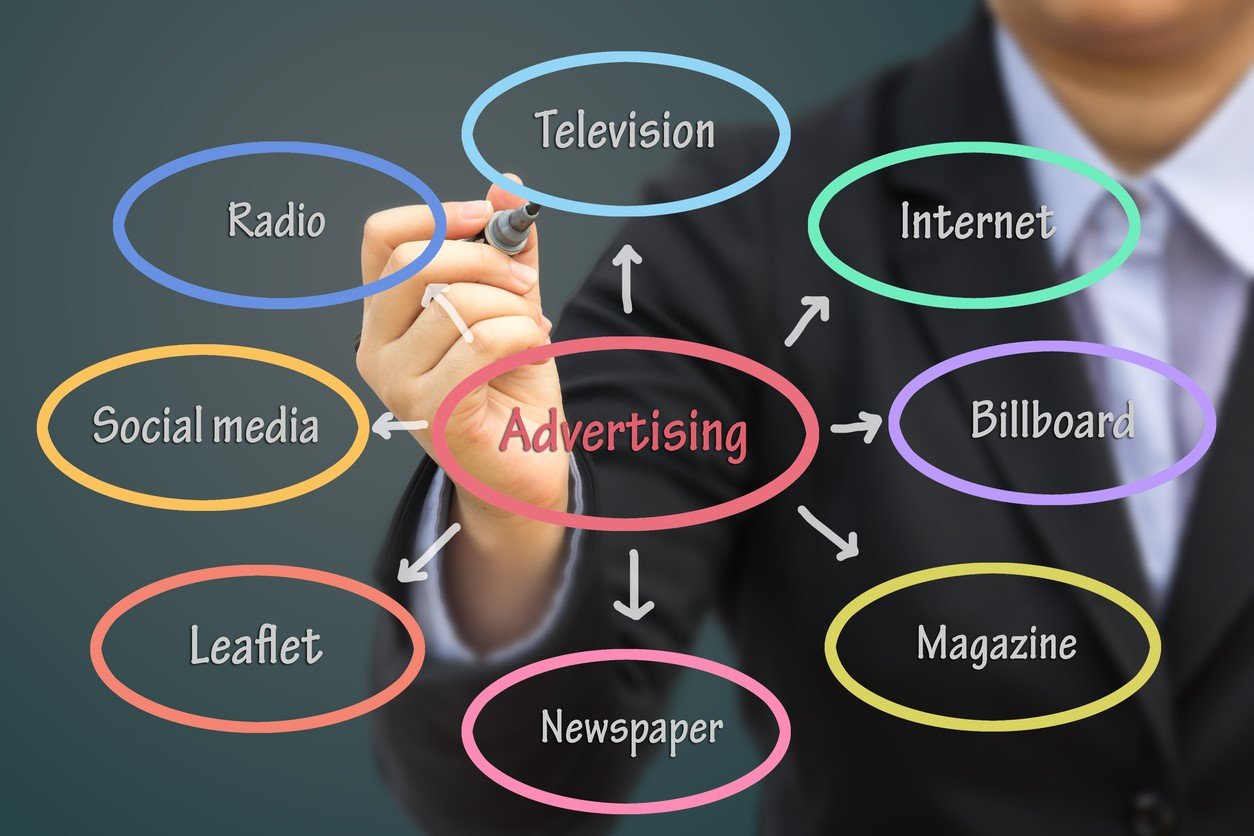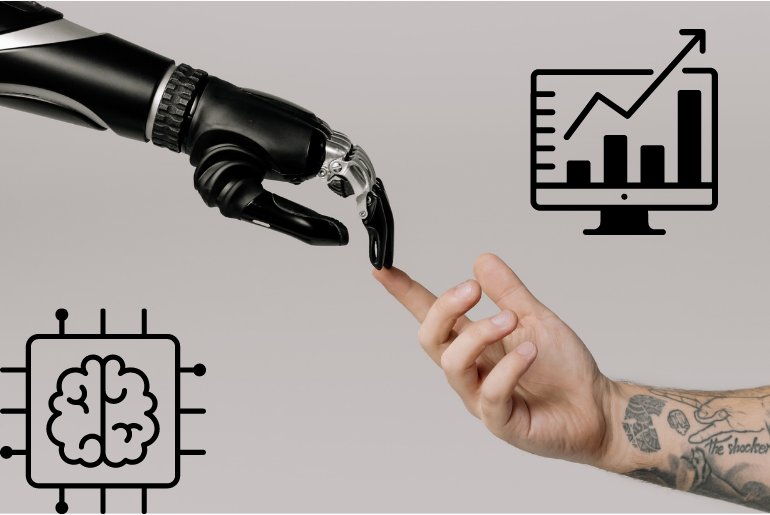
Catalyzing Customer Engagement: How Chatbots are Revolutionizing AI Marketing
October 4, 2023
Unlocking the Power of Social Media for BLead Generation
October 6, 2023
Are you ready to take your business to the next level? The world of marketing is evolving at lightning speed, and the question on everyone’s mind is: AI Marketing vs. Traditional Marketing – Which Is Right for You?
AI Marketing: Harness the Future’s Power
Envision the seasoned veteran of marketing, traditional marketing, with its billboards, newspaper ads, and television commercials. There’s a reason why it’s been around for so long. It has been tried and true, making it a trusted ally in the field of marketing. However, is it still the best option for you?.
On the other hand, there is AI Marketing, the audacious and cutting-edge newcomer. The ability to create personalized experiences that connect with your audience is made possible by machine learning and data analysis. It’s comparable to having a marketing team that is on call around the clock, analyzing data and making choices immediately. Certainly sounds impressive right?
Understanding AI Marketing:
Artificial intelligence (AI) and machine learning are used in marketing to improve a variety of marketing-related functions, including as data analysis, consumer segmentation, personalization, and automation. It enables marketers to use data and algorithms to optimize campaigns, make better decisions, and give customers more individualized experiences.
![4 Practical Ways to Use AI in Marketing (& Why You Need It)| [site:name]](https://staging.wordstreamcdn.com/wp-content/uploads/2021/12/benefits-ai-marketing-artificial-intelligience.png)
Benefits of AI in Marketing
1. Personalization and Customer Engagement
– AI enables hyper-personalization, tailoring content and recommendations to individual preferences, boosting engagement.
2. Predictive Analytics
– AI harnesses big data to predict consumer behavior, helping marketers make data-driven decisions for effective campaigns.
3. Automated Marketing Campaigns
– Save time and resources with AI-driven automation, from email marketing to chatbots, enhancing efficiency.
Challenges of AI Marketing
1. Data Privacy Concerns
– Address the ethical implications of AI, including data privacy and security, to build trust with customers.
2. Initial Implementation Costs
– Discuss the initial investment required for AI tools and platforms, balancing it with long-term benefits.
3. Learning Curve
– Highlight the need for staff training and adaptation as AI technologies continue to evolve.
Exploring Traditional Marketing
Pros of Traditional Marketing
1. Tangible Advertising Materials
– Discuss the tactile appeal of print materials and physical advertising, leaving a lasting impression.
2. Established Consumer Trust
– Explore how traditional methods build trust over time through familiarity and credibility.
3. Targeted Local Campaigns
– Explain the effectiveness of local marketing through traditional channels for small businesses.

Cons of Traditional Marketing
1. Limited Data Insights
– Contrast the lack of detailed analytics in traditional methods with AI’s data-rich environment.
2. High Advertising Costs
– Address the financial challenges associated with traditional marketing, especially for startups.
3. Difficulty in Measuring ROI
– Discuss the hurdles in accurately measuring returns on investment in traditional campaigns.

Marketing is an essential component of any business strategy as it allows companies to reach their target audience and promote their products or services effectively. With the advancement of technology, marketers now have access to a new and powerful tool known as Artificial Intelligence (AI). While traditional marketing methods have been tried and tested over the years, AI marketing offers a new and innovative approach. In this essay, we will explore the differences between AI marketing and traditional marketing and discuss which option might be right for you.
Traditional marketing encompasses various offline techniques such as print media, television, radio, and billboard advertisements. This form of marketing has been around for decades and has proven to be successful in attracting customers. It is a tried-and-true method that is reliable and familiar to many businesses. Traditional marketing also allows for a more personal touch, as interactions can occur face-to-face or through direct mail. Moreover, traditional marketing can reach a wider audience since not everyone has access to the internet or other digital devices.
On the other hand, AI marketing leverages the capabilities of machines and algorithms to analyze vast amounts of data and provide personalized marketing strategies. This form of marketing utilizes data-driven insights to identify consumer behavior patterns, target specific audiences, and deliver highly targeted advertisements. AI marketing can be implemented across various online platforms like social media, search engines, and mobile applications. By using AI algorithms, marketers can optimize their campaigns, save time and resources, and achieve better results. 
One key advantage of AI marketing is its ability to provide personalized experiences for customers. AI algorithms can analyze customers’ past behavior, preferences, and interactions to deliver tailored recommendations and advertisements. This level of personalization enhances customer satisfaction and increases the likelihood of conversions. Furthermore, AI marketing can track and predict customer trends, allowing businesses to stay ahead of their competitors and adjust their strategies accordingly.
Traditional marketing, on the other hand, relies on broad targeting techniques that may not provide the same level of personalization. It often involves a trial and error approach, wherein marketers test different strategies and analyze the results to optimize their campaigns. While traditional marketing may lack the precision of AI marketing, it can still be effective for businesses targeting a broader market or when personal interactions are crucial, such as in certain industries like real estate or luxury goods.
Choosing between AI marketing or traditional marketing ultimately depends on the nature of your business, target audience, and marketing goals. If you have a smaller budget or target a broad demographic, traditional marketing techniques may be more appropriate. However, if you operate in a highly competitive industry with a tech-savvy target audience, AI marketing can provide a significant advantage by delivering personalized experiences and precise targeting.
In conclusion, both AI marketing and traditional marketing have their strengths and weaknesses. While traditional marketing methods have stood the test of time, AI marketing offers a more data-driven and personalized approach. The choice between the two depends on your business objectives, industry, and target audience. It may also be beneficial to combine elements of both approaches to create a comprehensive and effective marketing strategy. Ultimately, the right choice is the one that aligns with your business goals and helps you reach and engage your target audience effectively.
.


